Lawyer Anthony Perre fined $6000 and suspended for six weeks after a hidden drug bunker was found at his home
When police raided lawyer Anthony Perre’s home, they found an elaborate bunker for growing cannabis, 10 guns and 45,000 rounds of ammunition. Now SA’s legal watchdog has ruled he can keep practising law after a brief suspension.
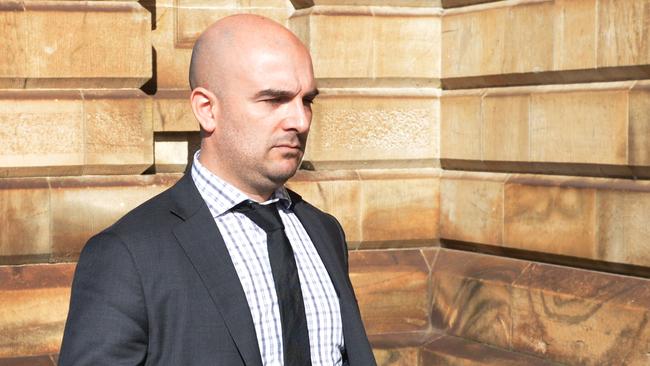
Police & Courts
Don't miss out on the headlines from Police & Courts. Followed categories will be added to My News.
- True Crime Australia: Great reads about terrible deeds
- How to make the most of your Advertiser digital subscription
Disgraced lawyer Anthony Perre – the son of accused NCA bomber Domenic Perre – has escaped with a minor penalty following an investigation into his conduct by the state’s legal watchdog.
Despite being convicted of stealing electricity and possessing prescribed equipment for growing cannabis, he was fined $6000 and had his practising certificate suspended for six weeks by Legal Profession Conduct Commissioner Greg May.
Perre, 37, was found guilty of unsatisfactory professional conduct following a two-year investigation by Mr May.
His penalty has outraged police and fellow lawyers who feel his conduct tarnished the profession and warranted a more severe sanction, but under law the maximum penalty available to Mr May was a three-month suspension and $10,000 fine.
The LPCC investigation was launched in mid-2017 following a police raid on Perre’s Waterloo Corner Rd property that resulted in him facing charges of electricity theft, possessing drug-growing equipment and possessing military ammunition.
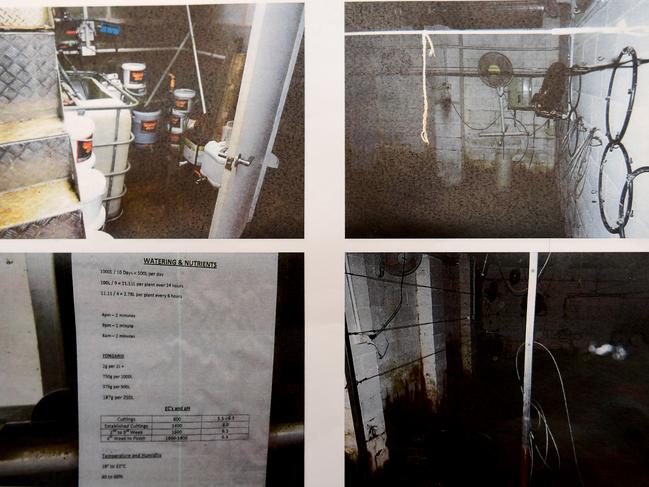
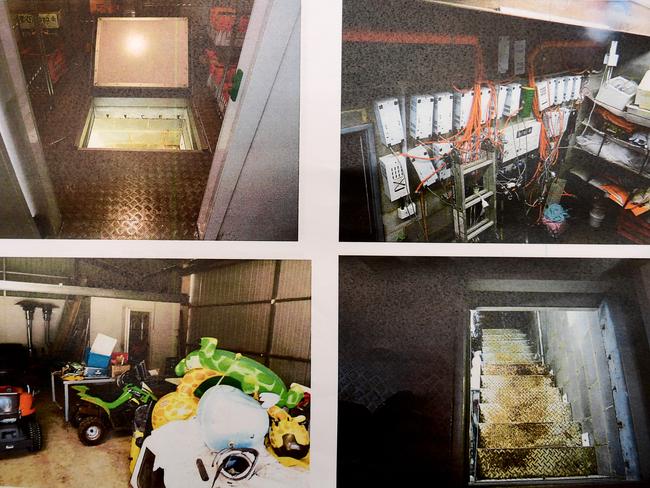
Several other individuals were charged with cultivating and trafficking cannabis as part of the same police operation.
When detectives raided the address they concentrated on a locked shed equipped with an alarm and video surveillance cameras.
A secret trapdoor was discovered leading to an elaborate, purpose-built grow room that measured 10m by 6m with a 4m-high ceiling. It contained a large quantity of plant nutrients, large carbon filters and a significant amount of equipment used in hydroponic cannabis cultivation.
The grown room also had a TV monitor that allowed an occupant to “screen’’ anyone entering the shed above it.
Detectives searched another shed and found large locked boxes that contained more than 45,000 rounds of ammunition, weighing 750kg.
Detectives also seized 10 firearms, including rifles and handguns, which were registered and secured. A search of Perre’s house revealed electricity had been diverted to power the underground bunker. The diversion had been concealed in a wall cavity.

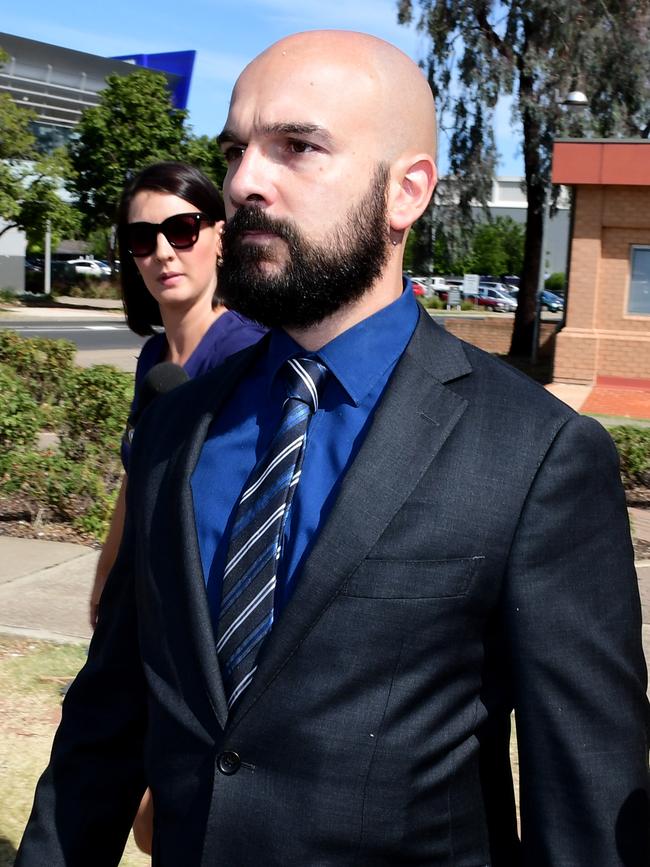
In Elizabeth Magistrates Court in April 2017, Perre, 37, pleaded guilty to two summary offences – diverting electricity and possessing prescribed equipment for growing cannabis for personal use – and was convicted and fined $1400.
Magistrate Yoong Fee Chin convicted and fined him $600 for possessing prescribed equipment and $800 for diverting electricity.
Mr Chin said Perre’s offending could bring the legal profession into disrepute.
“The members of the legal profession in a democratic society ... are the de facto guardians of the law. This calling has to be zealously guarded.” Mr Chin said.
Several months later, police dropped the charges relating to the ammunition because the difficulty in the definition of “military ammunition” made securing a conviction unlikely.
However, Perre’s gun licence was stripped by police under the fit and proper persons test. While his weapons were handed back and subsequently sold by him, the cache of ammunition was seized by police.
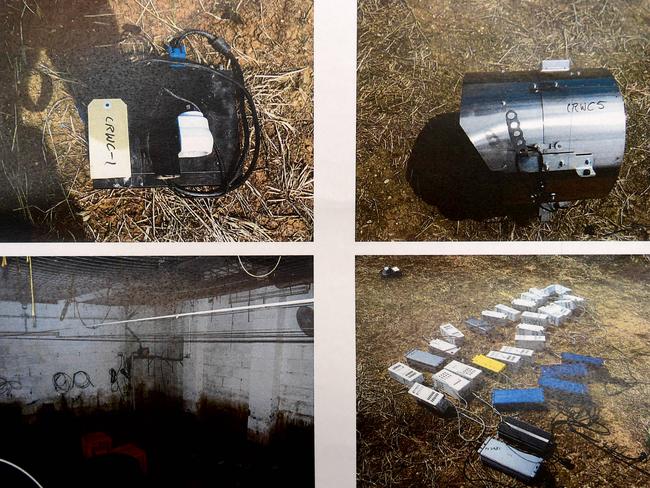
Following Perre’s conviction, then Director of Public Prosecutions Adam Kimber SC took the unprecedented step of writing to Mr May, urging him to examine Perre’s conduct and the disrepute it had brought on the legal profession.
Mr May has the power to investigate the behaviour of a lawyer’s non-work-related conduct under laws introduced following the Eugene McGee hit-run case, in which the prominent lawyer struck cyclist Ian Humphrey with his car and then left the scene.
A senior lawyer, who declined to be identified, said the penalty was “somewhat surprising considering the totality of the circumstances’’.
“I think he has been fortunate, considering the entire scenario. It is certainly not a good look for the profession,’’ the lawyer said.
One senior police officer questioned the adequacy of the sanctions against Perre.
“If this were a police officer in this position they would have been sacked. The standards for a lawyer’s conduct should be at the same level, particularly considering they are an officer of the court,’’ he said.
Law Society President Tim White said Mr May’s determination of unsatisfactory professional conduct related to “conduct that falls short of the standard of competence and diligence that a person should expect of a lawyer’’.
“Offences involving dishonest behaviour, such as Mr Perre’s offence of diverting electricity, can constitute unsatisfactory professional conduct under the Legal Practitioners Act,” he said.
Under the Legal Practitioners Act, the penalty for unsatisfactory professional conduct is a fine of no more than $10,000 and suspension for no more than three months.
“Committing an offence of dishonesty breaches the standards of integrity that members of the public deserve from practitioners, and it is hoped this finding serves as a lesson that practitioners should exhibit high standards of professionalism, diligence and honesty, both within and outside of their practice,” Mr White said.
Attorney-General Vickie Chapman declined to comment, stating it was “inappropriate to do so, given the decision was made independently of government’’.
